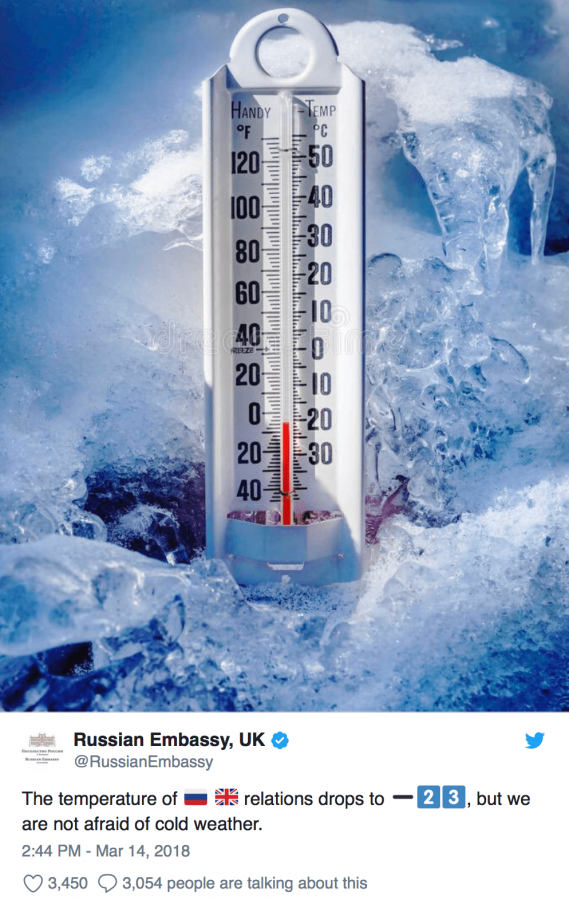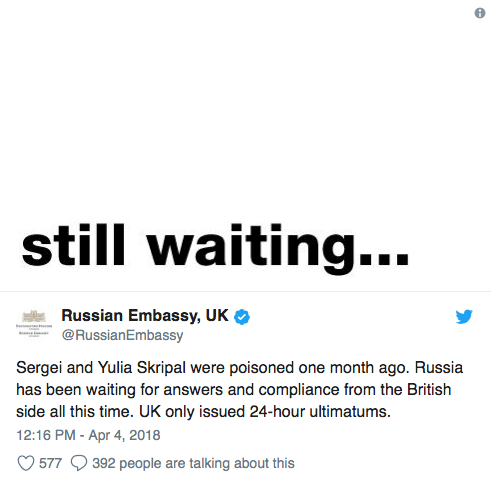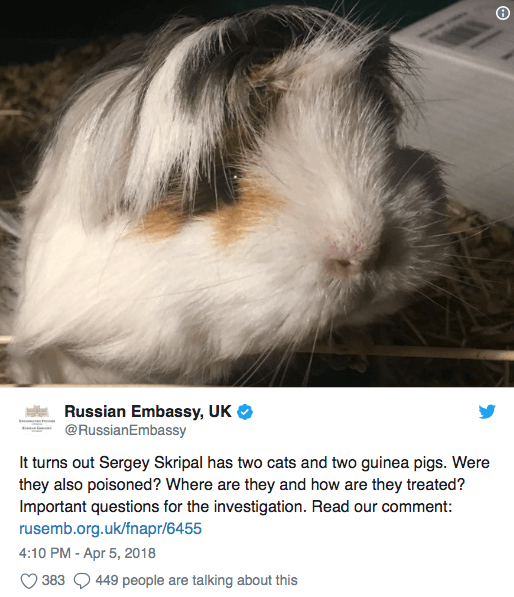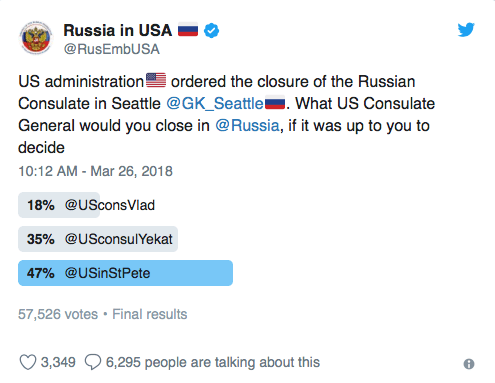As relations between the West and Russia plunge into a deep freeze not seen since the Cold War, there are growing concerns that Moscow is weaponizing social media to undermine its rivals. While this isn’t the first time Russia has engaged in the spreading of disinformation, this time we’re seeing official Kremlin accounts trolling adversaries through snarky digital diplomacy. Let’s take a closer look at how Russia has transformed the way nations communicate and why this could be the end of traditional diplomacy as we know it.
Russia has a long history of using social media to go after its adversaries, most notably with the use of fake news in the 2017 US presidential election that many argue helped Donald Trump win the White House. Just as unconventional as President Trump’s willingness to blast off half-truths over Twitter to get his message out, Moscow has ramped up its online attacks on Washington and London. The Kremlin has scaled up up the tempo of official tweets in hopes of shifting the conversation in response to the coordinated expulsion of Russian diplomats after an alleged chemical agent attack on a former double-agent in the English countryside.
In any major news event or crisis, there’s always a race against time to set the narrative. Britain, recognizing it needed international support from its allies to leverage pressure against Russia, quickly shaped its argument that the use of a military-grade chemical agent on its soil during peacetime was unprecedented and put the lives of Britons at risk. To Prime Minister Theresa May and her government, this was bigger than the attempted assassination of a former spy.
Russia, on the other hand, decided its best defence was to try and manipulate the public’s view of the attack and undermine the investigation by sowing the seeds of doubt through the use of memes that are easily shared across social platforms. In what surely enraged the British and its allies, Russia’s ability to thumb its nose at 10 Downing Street by taking lighthearted swipes at what many would consider a very serious provocation and violation of international law seemed to have gained some traction.

The fact that Jeremy Corbyn, leader of Her Majesty’s official opposition, has been accused by the governing Tories of being a Russian lackey and not fully siding with the government’s response shows this disinformation campaign has managed to drive a wedge into Westminster in what in another time would likely have seen bipartisan condemnation of the attack.
By some accounts, Russian tactics are working, and it is emboldening the Kremlin’s trolling efforts, even by going so far as to suggest the British were behind the attack. We have now entered the phase where official government spokespeople are lobbing ludicrous accusations that fly in the face of facts and reason, which is incredibly dangerous. If nations cannot rationally communicate with one another during a time of crisis, situations can quickly spiral out of control.

By dismissing the mass expulsions of its diplomats from more than 20 countries around the world, the Kremlin has managed to appear unfazed by the seriousness of the situation — despite the fact that its ability to gather intelligence has been diminished.
By denying basic facts and deflecting any responsibility, Russia’s digital diplomats are engaged in what is known as “whataboutism”— a strategy of consistently drawing attention to “Western hypocrisy” when it’s accused of any wrongdoing. While this may not be new in international affairs, Russia has taken this strategy mainstream with memes and online polls and is doing a good job at countering any rational arguments.

The bigger issue at play here is that when governments counter serious allegations with outlandish accusations, they further erode the public’s trust in the very institutions that are supposed to be held to the highest standards of trust and accountability. Through the use of politically charged memes, Russia is blurring the lines of fact and fiction that is causing many people to contemplate nonsensical theories they would have never considered before.
The Kremlin recently decided to shut down a US consulate in St. Petersburg based solely on the response it received from a poll it published on Twitter, which could have involved American citizens voting for the closure of one of their own diplomatic outposts. This is a prime example of how emboldened the Russian state has become in squaring off with the West and how the days of old fashioned diplomacy might be dead. Any thaw in relations between East and West may be a very long way away.

It’s important that governments, just like companies, remain committed to transparent communications or risk losing their credibility and damaging their reputation. But for Russia, its credibility and reputation doesn’t appear to matter as long as its strategic objectives are met, no matter the cost.


